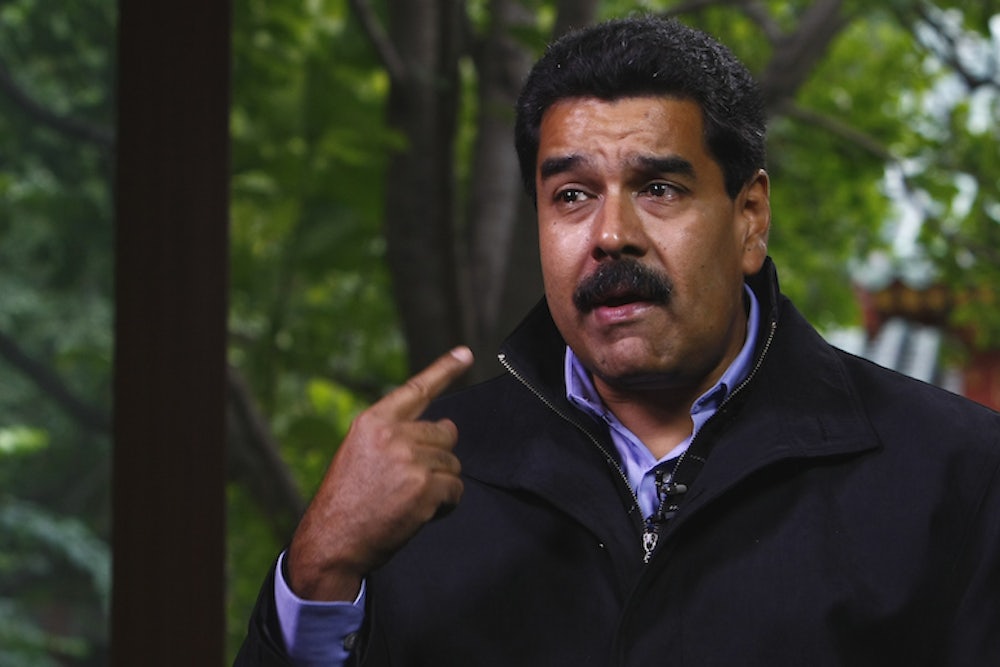A favorite source for those who still insist that freedom of speech in Venezuela is as thriving as ever is this BBC report (quoting the Communication Ministry), which states that only 5 percent of media outlets are owned by the state. The rest are in private hands, the argument goes, implying they’re therefore free to criticize the government.
Even if we disregard the well-founded fear of retaliation that causes private TV stations like Venevisión and Televén to sanitize their newscasts and keep critical political content to a minimum, this is unconvincing, because the government has an ace in the hole: it can force all radio and TV outlets to transmit a cadena, a compulsory simultaneous broadcast of government propaganda through all private and public media, of indefinite duration.
Saturday, for example, Venezuelans tuning into TV or radio were forced to sit through a several-hour long cadena covering Maduro’s street rallies, his politically charged rhetoric and slanderous accusations. Never mind that huge opposition protests were taking place all around the country. These were invisible to viewers. Us Venezuelans are used to this kind of lopsided coverage of opposition events, to the point that Henrique Capriles, who got 7.3 million votes in last year’s presidential elections, has been relegated to broadcasting his messages and press conferences through a puny web portal, capriles.tv.
This is the fine-print government apologists inevitably overlook. This hugely lopsided communication imbalance means state resources are used extensively for propaganda purpose, vilifying opposition voices, and imposing a biased, distorted versions of current events as undisputed truth.
In my experience, foreign observers have a hard time grasping how aggressively defamatory government propaganda can be. This seven minute clip, broadcast Saturday during Maduro’s cadena, should be a reality check for anyone doubting the lunatic extreme this abuse has taken.
It’s a seven-minute gusher of genuinely demented accusations against Leopoldo López and the “fascist” opposition that defends him. Anywhere else in the world, this kind of thing would be easy pickings for a defamation lawyer. In Venezuela, it’s forced onto every TV channel and radio station and nothing happens. And it's in this context that President Nicolás Maduro makes his heartfelt invitations for “dialogue” and “peace.”
This post originally appeared on Caracas Chronicles.
